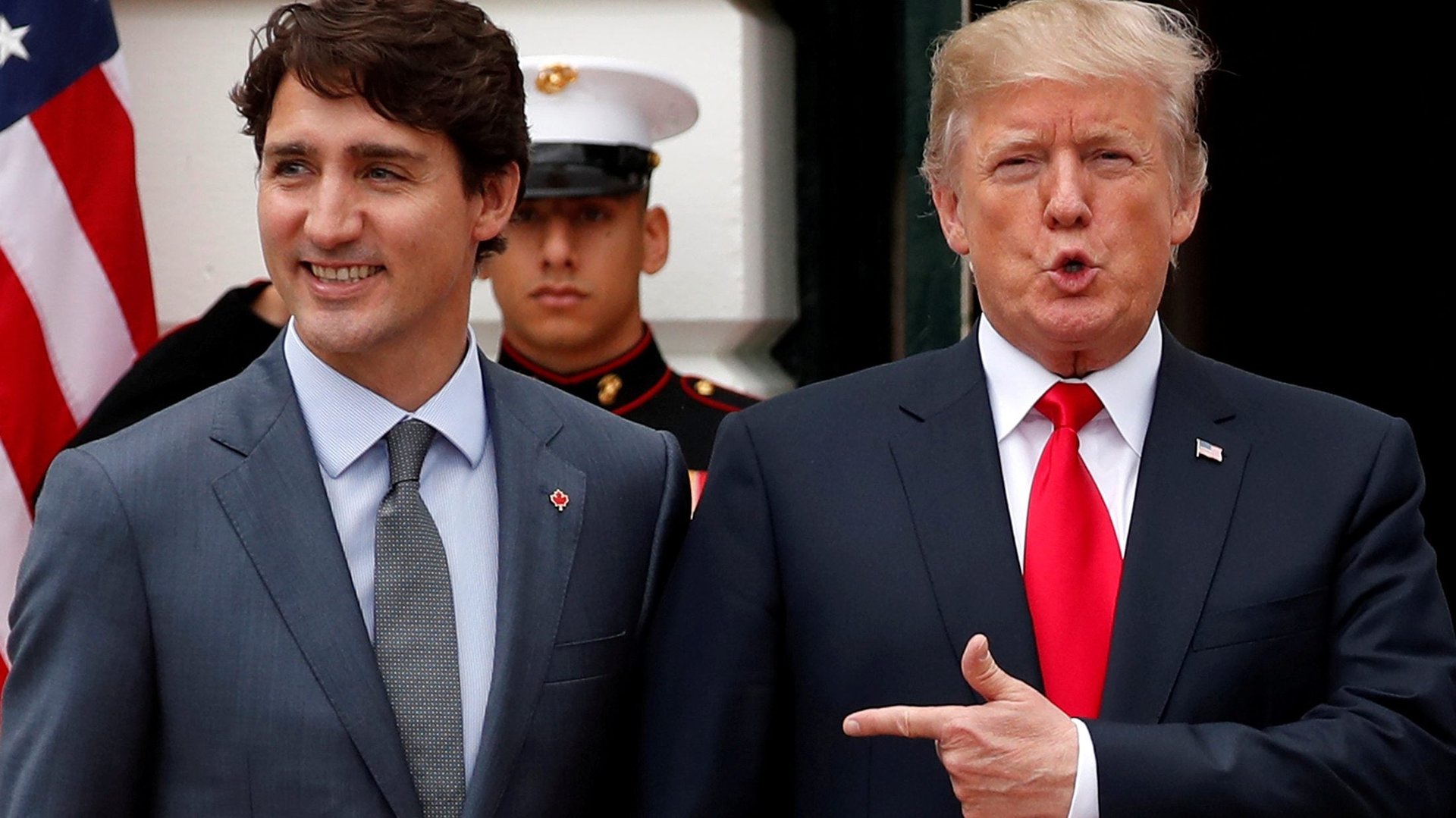Canada’s election season has begun. It’ll last just 40 days.
The 2019 Canadian election has officially kicked off.


The 2019 Canadian election has officially kicked off.
Prime minister Justin Trudeau, for a time the world’s most-celebrated liberal, is now consumed by scandal and looking to hang on for a second term. It’s hardly guaranteed. There are six main parties contesting the parliamentary election. Whichever party wins the most seats typically sees its leader become Canada’s prime minister.
Trudeau’s centrist Liberals are facing off against five other parties: The anti-immigration and perhaps misnamed People’s Party, the Conservatives, the left-leaning New Democrats, the Greens, and the Bloc Québécois, a separatist party that fields candidates in Quebec.
Despite such a range of parties, ideas, and agendas on offer, the contest will last just 40 days and wrap up on Oct. 21. If that seems a rather swift turnaround, it is—at least judging by US standards. The 2020 presidential election already unfolding in Canada’s neighbor to the south got underway when John Delaney announced his bid for the Democratic Party nomination in July 2017. That means the whole process—from selecting party nominees to the final vote—will take an exhausting 1,194 days.
Here is a closer look at the choice Canadians will need to make over the next six weeks:
Justin Trudeau
The Liberal Party won the last election in October 2015, introducing the charismatic Trudeau—the son of a former prime minister—to the world. Under Trudeau, the party managed to reverse its grim 2011 showing by campaigning on a more left-leaning agenda: Calling for electoral reform, major climate action, transforming Ottawa’s relationship with indigenous people, and more.
Like many past Liberal leaders, Trudeau governed more from the center once in office. He backtracked on electoral reform and pushed ahead with oil pipelines against the wishes of indigenous groups. Most damaging to his reputation, however, was the SNC-Lavalin affair. The federal ethics commissioner has said Trudeau “improperly” (pdf) pressured the country’s former attorney general to drop a criminal corruption case against the Quebec engineering giant. Support for the prime minister has hemorrhaged since the allegations broke in February. Trudeau took “full responsibility” last month, but declined to apologize and said he was trying to protect Canadian jobs.
Andrew Scheer
The fresh-faced Conservative leader is a 40-year-old social conservative and the biggest electoral threat to Trudeau. But he has come under fire for his past remarks against gay marriage and other issues. One of his top aide’s also has ties to the far-right Rebel Media. Trudeau fatigue could bolster Scheer’s chances.
Jagmeet Singh
The first non-white leader of a federal political party, the turban-wearing Singh has sought to reposition the New Democrats as the country’s most left-leaning party (it was formerly a socialist party). It had drifted more to the center in recent years, and in particular under its previous leader, Tom Mulcair.
The NDP was the official opposition after the Liberal Party, long known as the “natural governing party of Canada,” had its worst showing in its history in 2011. But polls are now dismal for the New Democrats. The party faces a tough fight in Quebec in particular, which has passed a draconian law barring civil servants from wearing religious symbols.
Yves-François Blanchet
Once a dominant force in Quebec politics at the federal level, the separatist Bloc Québécois was battered in both the 2015 and 2011 elections. It now holds just 10 seats in Canada’s parliament. The party under Blanchet could pick up a few seats this year.
Elizabeth May
The leader of the Green Party, which now holds two seats in parliament after MP Paul Manly won in a by-election earlier this year in British Columbia, has seen its prospects rise as the urgency of addressing climate change grows. May’s party has seen record support in polls leading up to the 2019 election, but Canada’s winner-take-all electoral system—which Trudeau in 2015 vowed to scrap and then didn’t—will likely translate to few seats for the Greens.
Maxime Bernier
The former Conservative MP, who narrowly lost the party leadership contest to Scheer in 2017, launched his People’s Party last year. The Quebec politician has cobbled together support from libertarians, climate change deniers, and anti-immigration backers. But his party’s poll numbers are low—meaning his party is unlikely to pick up any seats, let alone qualify for the debates, and Bernier faces a tough contest for his own parliamentary seat.
Who could win?
It’s likely Trudeau, according to the polls. That’s either through another parliamentary majority, or by forming a minority government—with backing from other parties. Singh has ruled out propping up a Conservative government due to Scheer’s past remarks on gay marriage, just one sign the parliamentary arithmetic is stacked against the Tories.
In any case, it will be a hard-fought election. And the tone of the campaign will likely be bitter—a reminder that the “sunny ways” of Trudeau circa 2015 have long since faded. But at least Canadians can be thankful that the contest won’t be a multi-year slog.